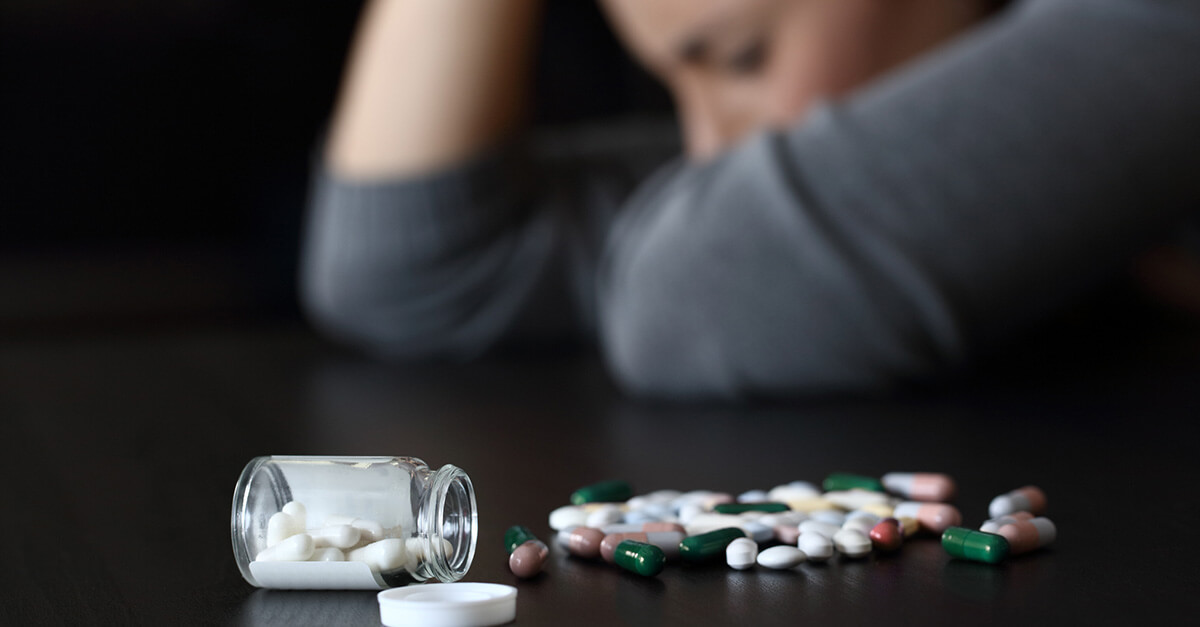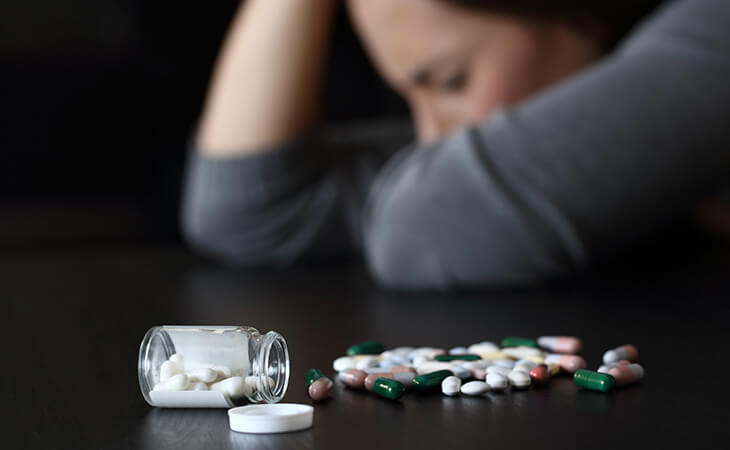What are co-occurring disorders?


Some people who have mental health disorders turn to substances like alcohol or drugs to cope with the illness and its impact on their lives. This can lead to substance use disorder. And some people with a substance use disorder develop a mental health disorder. When you have a mental health disorder and substance use disorder at the same time, you have co-occurring disorders.
From the community: “Go to a mental health center, or a hospital emergency room. You may have to put the concerns about your wife and business aside, if you are ever going to get things better under control. There are a lot of treatment and rehabilitation options going on for substance use these days. It seems a lot of people are afraid to take advantage of them. But tell yourself, and remind the providers, or vice versa that there is a prescription drug addiction crisis in this country, and you are not alone…” – Inspire member
Understanding co-occurring disorders
A 2020 National Survey on Drug Use and Health found that 17 million Americans have co-occurring disorders. Researchers estimate that half of people with a mental health disorder will develop a substance use disorder, while half of people with substance use disorder will develop a mental health disorder. But that doesn’t mean that one disorder causes the other one.
A variety of factors can make someone more susceptible to co-occurring disorders like:
Brain changes: Changes to chemicals in the brain may lead to certain mental health disorders. These brain changes may make the effects of substances more rewarding and appealing, increasing the chances that a person will misuse a substance. A substance use disorder can also trigger brain changes that lead to a mental health disorder.
Poor coping: Some people with mental health disorders use alcohol or drugs to self-medicate and cope with their feelings. At first, these substances may seem helpful. But they actually make symptoms worse.
Shared risk factors: Substance use disorders, as well as certain mental health disorders like bipolar disorder, can affect members of the same family. Stress, trauma, and other environmental factors may cause gene changes or mutations that increase the risk of co-occurring disorders.
What mental health disorders may occur with substance use disorder?
Having one or more of these mental health disorders increases your risk of substance use disorder and co-occurring disorders:
anxiety
bipolar disorder
From the community: “it’s really hard for me when we have alcohol in our house for me to not have one or more (always more) drinks when I am feeling anxious in the evening. does anyone else have this problem? I’m feeling like I don’t have good self-control because I know I will be better off if I don’t drink, but I can’t resist the temptation because of the short term gratification I feel after I drink. I don’t know if this is an addiction. I just feel bad about it and I’m not sure why.”– Inspire member
What substances do people with co-occurring disorders misuse?
Someone with co-occurring disorders may misuse one or more of these substances:
alcohol
hallucinogens like LSD or PCP
marijuana
nicotine and tobacco
opioids, including heroin
prescription medications
stimulants like cocaine, heroin, and methamphetamine (meth), as well as prescription ADHD medications
What are the signs of co-occurring disorders?
Signs of co-occurring disorders vary depending on the mental health disorder and the substance. They may include:
anger issues
difficulty keeping a job
dramatic, unexplained mood changes
financial, legal, or relationship problems
sudden changes in behaviors like taking unnecessary risks
suicidal ideation
withdrawing from friends and families
From the community: “I too have difficulty with anxiety, drinking, and properly expressing my thoughts. I've been taking medication, which has helped somewhat but as my psychiatrist says, it can only do but so much. I listen to podcasts (just search for "anxiety" and you'll find a lot of them) and read about ways to help curb that negative thinking that comes with anxiety. I find I still have negative thoughts, but I'm working on having more rational ways to deal with them. I find that all alcohol does is make things worse. I also bottle things up and lash out when I drink, to the point where things get really, really bad. For me, I just have to learn to not drink at all, or at least not drink at all when I'm feeling this certain way where I know drinking is only going to bring out the beast in me. It sounds like you are making steps in the right direction. I hope you find answers and I wish you the best.” – Inspire member
How are co-occurring disorders diagnosed?
A psychiatrist often diagnoses mental health disorders. This medical doctor may also diagnose a substance use disorder, or you may see a licensed alcohol and drug counselor. To make a diagnosis, these experts evaluate and compare symptoms to criteria established by the American Psychiatric Association in the Diagnostic and Statistical Manual of Mental Disorders (DSM-5-TR).
How are co-occurring disorders treated?
People who have co-occurring disorders need integrated intervention. This means you receive treatments for both disorders at the same time.
Treatments for co-occurring disorders include:
Detoxification, typically as a patient at a rehabilitation center, to safely wean off substances while minimizing withdrawal symptoms.
Medications for mental health disorders like antidepressants and anti-anxiety medications, as well as medicines to ease substance withdrawal symptoms.
Psychotherapy, such as cognitive behavioral therapy (CBT), to change thought processes and behaviors that worsen mental health disorders and increase the risk of substance misuse.
Group therapy and support groups to have a safe space to share personal stories and learn new coping strategies. In addition to in-person meetings, you and your loved ones can find support by joining Mental Health America’s mental health support group and discussion community on Inspire.
Sources
Substance use disorders. National Alliance on Mental Illness.
Substance use and co-occurring mental disorders National Institute of Mental Health. March 2021.
Co-occurring disorders. Psychology Today. July 2021.
Facts about co-occurring disorders that often go unnoticed. Resources to Recover. March 2020.
Co-occurring disorders and other health conditions. Substance Abuse and Mental Health Services Administration. April 2022.
Mental health and substance use disorders. Substance Abuse and Mental Health Services Administration. April 2022.
Disclaimer
Member comments are lightly edited for length and to remove identifying information but are otherwise reproduced as they appear in the community as part of public posts.
This content is for general informational purposes only and does not necessarily reflect the views and opinions of any organization or individual. The content should not be used as a substitute for professional medical advice, diagnosis, or treatment. Please consult your healthcare provider about any questions you may have regarding a medical condition.




